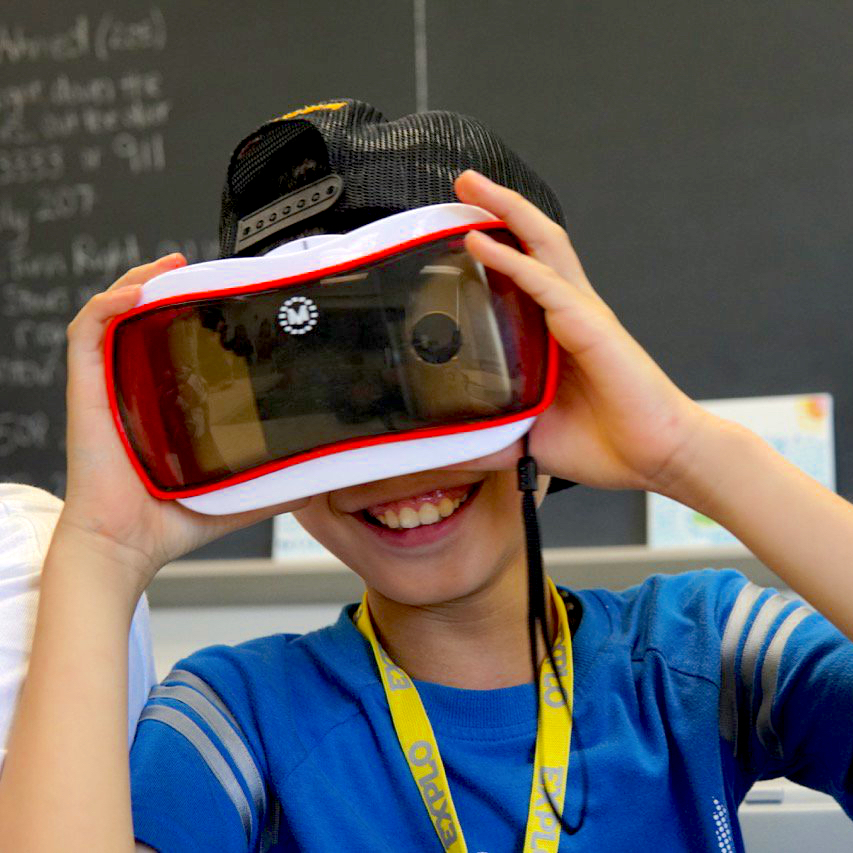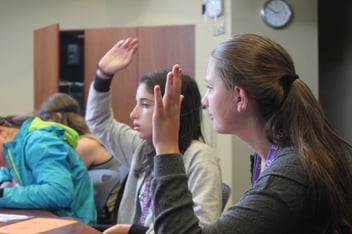5 Things Your Teen’s Summer Camp May Be Missing

Teenagers are, to put it mildly, not the most communicative bunch. Your mileage may vary, but for many parents, prying more than a few sentences out of a teen is always a challenge.
So when your teen comes home from summer camp, it can be difficult to determine what they got out of the experience — and what they didn’t. Their three-word reviews — “It was good,” “I had fun,” — aren’t the most helpful pieces of feedback.
Summer is an opportunity for teens to break out of the same-old academic routine of the school year, to make discoveries, to explore the world beyond their hometown bubbles, and to meet people from different backgrounds. You want your child to get the most out of their precious and fleeting teenage summers, but you’re not sure if they are.
What is your teen missing at their summer camp? Your teen may not tell you, so here are a few possibilities:
1. The Freedom to Choose
For better or for worse, one of the hallmarks of the American educational system is rigidity. Students are locked into a curriculum set by government standards. The classroom experience is largely passive; students listen to lectures, read textbooks, and take exams.
Amidst all this, there’s not much room for teens to practice agency, to follow where their own curiosity leads. The pressure is on to get good grades, not to try and, perhaps, fail (but to learn from failure).
A high-quality academic summer camp recognizes that summer can be different. Most teens actually love learning, but they engage most with the material when they’re in the driver’s seat.
Summer can be a chance for teens to explore the subjects that appeal to them, even subjects they’re not very good at. This is how lifelong passions are born.
But it’s not just about academics. The best academic camps build the freedom to choose into all the programming, from the classes students enroll in, to the weekend activities they attend, to the discussion groups they join, to the meals they eat.
After all, while high school may be about following a well-trodden path, the real world is about charting your own course. Summer is the perfect time for your teen to get their first taste of agency (under the guidance of a supportive community of educators, of course).
2. The Individualized Approach
You probably don’t need to be reminded that your teen’s personality, combination of interests, and learning style are all unique. No teen is exactly the same.
Too often in life, we’re treated like just another number, as if one person were interchangeable with another. Your teen will have plenty of opportunities for that when they get older; they shouldn’t have to experience anonymity at summer camp.
A great summer program approaches every student as the individual they are, employing the teaching strategies that encourage your child’s one-of-a-kind character to flourish.
3. The Solution to ‘Brain Drain’
You’ve probably read about “brain drain” or watched news segments on the phenomenon. Unfortunately, it’s a real thing. Educational experts say students can lose up to two or three months of math and reading skills over the summer.
Your teen’s teachers are all-too-familiar with summer brain drain. They’re accustomed to dedicating the first few weeks of each new school year to reviewing material from the last one. And to make matters worse, the evidence shows that brain drain can add up over time, affecting a student’s readiness for college and the workforce.
The cure to brain drain? Keeping your teen’s intellect sharp and their creativity engaged throughout the summer months.
Experts recommend summer programs that focus on learning, but not in a dull way. Young brains crave hands-on challenges that apply classroom lessons to real-world situations. Research shows that this kind of “experiential” or “active” learning helps students retain information up to 1.5 times longer than classroom-based lectures.
4. Something Your Teen’s Not Getting in School
Driven by state standards that overlook the individuality of each student, high schools tend to emphasize subjects like math and writing. While these subjects are indeed critical, disciplines such as the arts, engineering, and business are just as valuable for shaping well-rounded young minds, stimulating creativity, and sparking interest in possible college majors and career fields.
A high-quality educational summer program can pick up the slack in areas where schools are unable or unwilling to provide programming.
5. The Chance to Stretch and Challenge Themselves
Your teen may be very comfortable and satisfied with their current summer camp. And there’s something to be said for taking the time every summer to relax and recharge in a familiar environment.
But returning to the same program year after year may not help your teen grow or develop new skills. Growth comes from challenge, stepping slightly out of our comfort zones and trying something new.
To be fair, new experiences, people, and places can be intimidating. But the best educational summer programs understand that and train their staff to be supportive while nurturing a community that encourages experimentation without judgment or pressure.
Discover the Secret to a Transformative Summer
 Summers can be pivotal in a teenager’s life. Is your teen’s summer camp fun, or is it fun and life-changing?
Summers can be pivotal in a teenager’s life. Is your teen’s summer camp fun, or is it fun and life-changing?
Learn how to help your teen make the most of summer in our free guide, “The Secrets to a Transformational Summer Camp Experience for Your Teen.”



